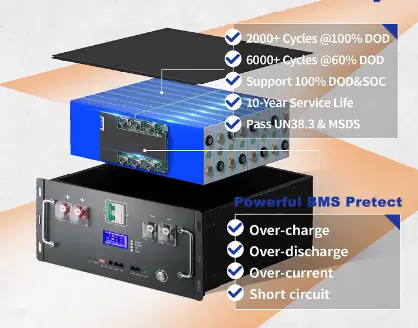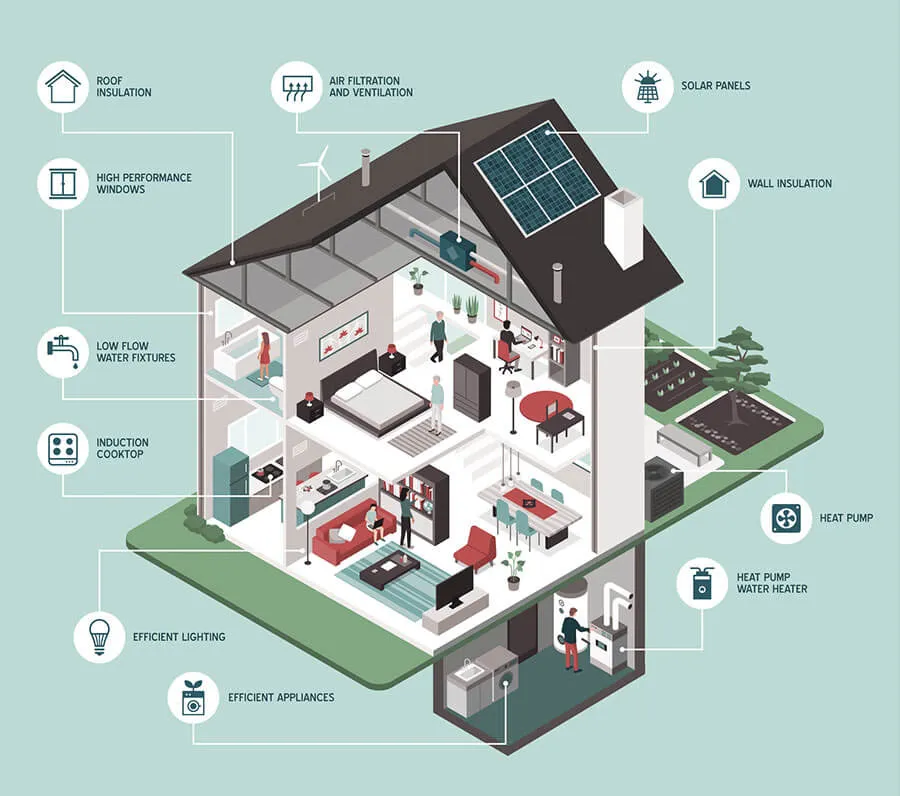Introduction
When choosing batteries for a solar PV system, it’s essential to find an option that maximizes energy storage, safety, and longevity. Lithium batteries, specifically Lithium Iron Phosphate (LiFePO4), have emerged as the ideal choice for solar applications due to their reliability and superior performance. This guide dives into why LiFePO4 batteries stand out in the market, what makes them safer than other lithium-ion batteries, and how they deliver unmatched lifespan and efficiency for solar power systems.
Why Choose Lithium Batteries for Solar Systems?
Lithium batteries have become a top choice in solar applications thanks to their high efficiency, light weight, and robust energy storage capacity. Compared to traditional lead-acid batteries, lithium batteries offer superior energy density and longer life. Among lithium batteries, LiFePO4 stands out for solar PV installations. Here’s why:
- Higher Efficiency: LiFePO4 batteries can convert solar energy into storable power with minimal energy loss, making them highly efficient and reliable.
- Longer Cycle Life: They can last over 10 years with thousands of cycles, far surpassing the lifespan of lead-acid or other lithium options.
- Improved Safety: LiFePO4 technology is inherently stable, with low risk of overheating or combustion, making it a safer option for residential use.
1. LiFePO4: The Safest Choice in Lithium Batteries
Safety is a critical concern when choosing batteries for solar systems, especially if they are stored indoors or in confined spaces. LiFePO4 batteries are widely recognized as the safest lithium battery type because: Thermal Stability: They have a much lower risk of thermal runaway, which reduces the chance of overheating and fires. This feature makes them ideal for households and off-grid setups where safety is paramount. Non-Toxic Materials: Unlike some other lithium chemistries, LiFePO4 doesn’t contain cobalt, which is both toxic and associated with increased risk of thermal instability. Higher Tolerance for Temperature Variations: They perform well in varying temperatures, handling both high heat and extreme cold better than other batteries, which is essential for maintaining consistent solar power storage.
2. Long-Lasting Performance: Why LiFePO4 Batteries Outshine Others
One of the biggest advantages of LiFePO4 batteries is their long lifespan, making them cost-effective in the long term. They generally last between 5,000 and 7,000 cycles, which translates to about 10–15 years of reliable service under typical usage. Low Degradation: LiFePO4 batteries degrade much slower than traditional lithium-ion batteries. They retain their capacity even after thousands of cycles, ensuring you get the most from your investment. Depth of Discharge (DoD): These batteries have an impressive DoD of up to 95%, allowing you to use almost all the stored energy without impacting the battery’s longevity. Cost Efficiency Over Time: Although LiFePO4 batteries may cost more upfront, their extended lifespan means fewer replacements and lower maintenance costs over the years.
3. Battery Capacity and Power Ratings: Meeting Solar Needs
When selecting batteries, it’s crucial to balance capacity (the total energy a battery can store) and power rating (how much energy it can deliver at once). LiFePO4 batteries excel in both areas, with high energy density for long-lasting storage and robust power ratings that can support household needs. For instance, if your solar system typically generates excess energy during peak hours, LiFePO4 batteries can store that power efficiently, ready for evening use or cloudy days. This capacity helps reduce reliance on the grid, which can lead to significant energy savings.
4. Round-Trip Efficiency: Maximizing Energy Retention with LiFePO4 Round-trip efficiency measures how well a battery retains energy from charge to discharge, directly impacting how much solar energy you keep versus what’s lost. LiFePO4 batteries boast a high round-trip efficiency of 90–95%, meaning almost all the power you put in is available when you need it. This high efficiency is especially valuable in solar systems, as it means you’re maximizing the use of every bit of energy captured. Fewer losses translate to more savings and more reliable backup power when the sun isn’t shining.
Introduction
Frequently Asked Questions about LiFePO4 Solar Batteries
Q: Are LiFePO4 batteries worth the upfront investment for solar?
A: Absolutely! LiFePO4 batteries have a higher upfront cost, but their long lifespan, safety, and efficiency make them a cost-effective choice over time, reducing replacement and maintenance costs.
Q: How do LiFePO4 batteries compare to lead-acid batteries?
A: LiFePO4 batteries outperform lead-acid in almost every area: longer lifespan, greater DoD, and better energy efficiency. While lead-acid is more affordable upfront, the frequent replacements often make it more expensive in the long run.
Q: Can LiFePO4 batteries handle daily use in a solar PV system?
A: Yes, they’re designed for frequent cycling, making them ideal for daily use in solar applications. With thousands of charge cycles, they’re highly suited for homes that want to rely heavily on solar power.
Conclusion
For solar PV systems, LiFePO4 batteries are the natural choice. Their superior safety, extended lifespan, and excellent energy efficiency make them a standout option in the lithium battery family. Although they come with a higher upfront cost, the durability and minimal maintenance make them a smart, long-term investment. When it comes to selecting a battery that will complement your solar installation, choosing LiFePO4 means reliable power storage, cost savings, and peace of mind.



